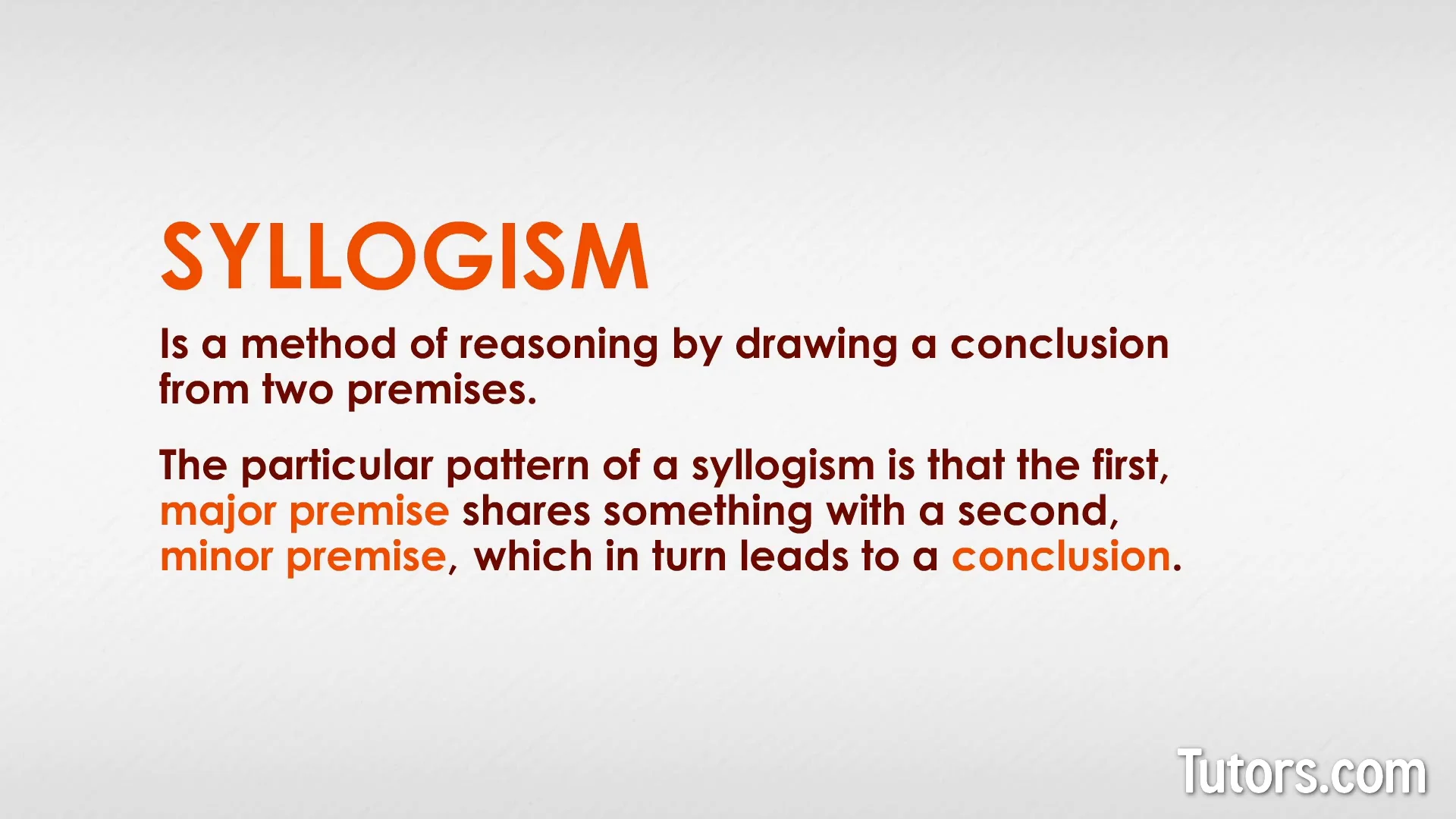 I was thinking about this lately and it seems to me, especially when it comes to religion, but that’s not the only place it occurs, that far too many people completely misunderstand how logical syllogisms work. They seem to think that if you can put a three-line argument together, you’ve automatically won the debate.
I was thinking about this lately and it seems to me, especially when it comes to religion, but that’s not the only place it occurs, that far too many people completely misunderstand how logical syllogisms work. They seem to think that if you can put a three-line argument together, you’ve automatically won the debate.
Sorry, that’s not how it works at all. Therefore, I’m going to give a high-level overview of syllogisms and why so many people are using them completely wrong. Hope it helps.
Unfortunately, a lot of people seem to think philosophy is a “get out of thinking critically” card and it’s just not so. It’s far too easy to squirm your way around your logical and rational responsibilities in philosophy and sound smart, even if you’re not. Therefore, let’s take a look and see how it’s supposed to work and why it gets so badly misused.
The standard syllogistic form has three parts. A major premise, a minor premise and a conclusion which derives directly from the two premises presented. That’s it. If you see someone using 50 different premises, they’re doing it wrong, yet that isn’t the entirety of the problems that the irrational can get into while desperately trying to get to their farcical beliefs.
 Take the “therefore God” problem that I’ve pointed out many times before. I did a 4-part series on my YouTube channel a long time ago where I looked at 40 different philosophical arguments presented for God and all of them failed. Why? Some of it was structural, as I already mentioned, but mostly, the conclusions, which was mostly “therefore God,” didn’t come out of the premises, it came out of thin air.
Take the “therefore God” problem that I’ve pointed out many times before. I did a 4-part series on my YouTube channel a long time ago where I looked at 40 different philosophical arguments presented for God and all of them failed. Why? Some of it was structural, as I already mentioned, but mostly, the conclusions, which was mostly “therefore God,” didn’t come out of the premises, it came out of thin air.
Here’s the first part of that series: 40 Bad Arguments for the Existence of God Part 1.
We can look at the following:
- All mammals are animals.
- Camels are mammals.
- Therefore, camels are animals.
The conclusion derives directly from the two premises presented. So long as the premises are true and the conclusion arises logically from those premises, you have a valid and sound syllogism.
Yet you can also get this:
- All mammals live on land.
- Whales are mammals.
- Therefore, whales live on land.
That’s simply not true. The first premise is false and if any of the premises are false, then the entire syllogism fails, even if the conclusion derives from those premises. Where we run into problems with religion specifically is that they will propose things that are either demonstrably false or, at the very least, not demonstrably true, often phrased as “if X…” They then just assume that “if” means “because” and move on with their argument. that’s not how it works.

One thing that needs to be kept in mind is that, in any given discussion, the premises need to be agreed to by all parties involved. If it isn’t, as the above syllogism about mammals shouldn’t be, the argument fails to be convincing.
The problem comes in when one side stops caring about the truth. they figure that if they can construct a syllogism, they win. That’s not how it works. Your syllogism has to be both valid, meaning that it is in proper syllogistic form, and sound, meaning the premises are true and the conclusion derives therefrom. If both are not true, the argument fails. Yet for the religious, they don’t really care, do they?
So here’s a particularly bad example of this:
1. There are things that we cannot explain yet.
2. Those things must be caused by God.
 Not only is this not in proper syllogistic form, but it’s making a bald assertion that cannot be validated with evidence. While there certainly are things that we cannot explain yet, there’s no good reason to think that God is the correct explanation.
Not only is this not in proper syllogistic form, but it’s making a bald assertion that cannot be validated with evidence. While there certainly are things that we cannot explain yet, there’s no good reason to think that God is the correct explanation.
We can also look at this one:
1. There exist objective moral truths. (Slavery and torture and genocide are not just distasteful to us, but are actually wrong.)
2. These objective moral truths are not grounded in the way the world is but rather in the way that the world ought to be. (Consider: should white-supremacists succeed, taking over the world and eliminating all who don’t meet their criteria for being existence-worthy, their ideology still would be morally wrong. It would be true, under this hideous counterfactual, that the world ought not to be the way they have made it.)
3. The world itself — the way that it is, the laws of science that explain why it is that way — cannot account for the way that the world ought to be.
4. The only way to account for morality is that God established morality (from 2 and 3).
5. God exists.
Ignoring the fact that it’s not a proper syllogism, it starts off with an unjustified claim and then it just steamrolls out of control all the way down to “therefore God!” None of those premises are demonstrable, they are all based on how the individual wants things to be, not on how they verifiably are. It’s why this argument, incredibly common among theists, fails miserably. Honestly, these people don’t have the slightest clue how to do philosophy, which is sad because a lot of the people pulling this are supposedly trained philosophers. Their theology overrides their philosophy every single time.
It is just such a waste of time to argue with these people because they’re not arguing in good faith. They just want to be right because it soothes their egos, not because it means anything in their heads. Far too many people pull this, religious and otherwise and frankly, I’m kind of sick of it. How about you? Please let me know what you think down in the comments.